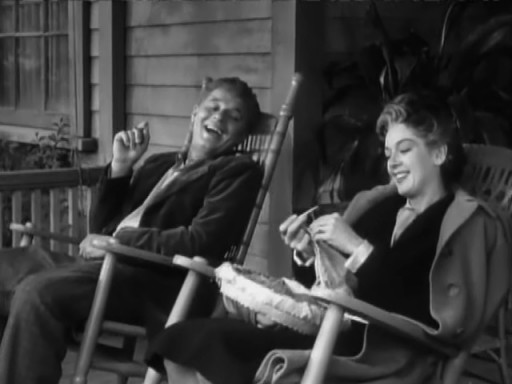Watch from 03:48 in clip 2.
Monthly Archives: February 2010
There were bound to be tears in the end
The sad truth is that Mrs Thatcher, behind the hugely successful front which enabled her to dominate her generation, was a driven, insecure and rather lonely woman who lived for her work and would be lost when her astonishing career ended, as one day it eventually must. In her early days her phenomenal energy, her single-mindedness, her inability to relax, to admit any weakness or trust anyone to do anything better than she could do it herself, were all strengths and part of the reason for her success; but the longer she went on, the more these strengths turned to weaknesses – a loss of perspective, growing self-righteousness, a tendency to believe her own myth, an inability to delegate or trust her colleagues at all, so that instead of leading a team and preparing for an eventual handover to a successor, the Government became ever more centred on herself. There were bound to be tears in the end, and there were.
- John Campbell, Margaret Thatcher, Volume Two
40′s movies marathon – part 71

Roughly Speaking (1945, USA, Curtiz) – Rosalind Russell is an ambitious proto-feminist who wants it all in early 20th century America: A personality of her own, a husband, children, and a career. And she more or less gets it too. She has her fair share of poor luck, but she always makes the best of it, always ready to start over again in a new direction. She’s a stoic feminist hero, (the best kind). Watched it all.
Johnny Angel (1945, USA, Marin) – A captain loses his father at sea under mysterious circumstances. He goes looking for answers (I’m fairly sure it’s answers) among local prostitutes. Watched it all.
Brief Encounter (1945, USA, Lean) – A brainy married couple are unhappy and listen to Rachmaninoff, while having internal monologues about how depressed they are. Well, maybe they shouldn’t be listening to Rachmaninoff all the time then. Watched: 16 minutes. IMDB says this is the 207th best movie of all time, which means I’m an idiot, or possibly everyone else is.
Murder, He Says (1945, USA, Marshall) – The local sheriff claims he’s fearless, but he’s actually a coward. See, that’s a whatchamacallit, a joke. And there are more! Watched: 3 minutes.
The Dolly Sisters (1945, USA, Cummings) – Life was jolly in ye jolly old times. Watched: 10 minutes.
Anchors Aweigh (1945, USA, Sidney) – On leave from the Navy, Gene Kelly is cockblocked by Frank Sinatra. I can never get over how different young Sinatra looks from how his voice sounds. At 30, he still looks like an awkward teenage boy. Watched: 39 minutes.
Allies Open Final Drive On Germany (1945)
Things to watch for:
1) The four soldiers with top hats. For a few seconds, it feels like you’re right there.
2) The cheerful tone of the “A city dies!” segment, in which we see the city of Pforzheim – along with 17 000 civilians - “being literally wiped out before your eyes. Explosions and fires are sucking the oxygen out of the air. Nothing can live in this inferno!”
3) The sudden switch from violence for real to violence for fun in the last segment.
From Alfred Roberts to Mark Thatcher in three generations
The padarox of Thatcherism is piquantly embodied in the history of her own family. Think back to Alfred Roberts in his Grantham grocery, the small town shopkeeper, patriot and preacher, husbanding the ratepayers’ pennies and raising his clever daughter to a life of Christian service, diligence and thrift. Then look forward to the future Sir Mark Thatcher, an international ‘businessman’ posessed of no visible abilities, qualifications or social conscience, pursued from Britain to Texas to South Africa by lawsuits, tax investigations and a persistently unsavoury reputation. Imagine what Alfred would have thought of Mark. It is well known that Denis – a businessman of an older generation – took a dim view of his son’s activities. Yet for Lady Thatcher Mark could do no wrong. The world in which he acquired his mysterious fortune was the world she helped to bring to birth: the values he represents are the values she promoted. Torn between pious invocations of her sainted father and fierce protectiveness towards her playboy son, Margaret Thatcher is the link between two utterly opposed moral systems which reflect not only the ambivalence of her own personality but the story of Britain in the twentieth century: From Alfred Roberts to Mark Thatcher in three generations.
- John Campbell, Margaret Thatcher, Volume Two